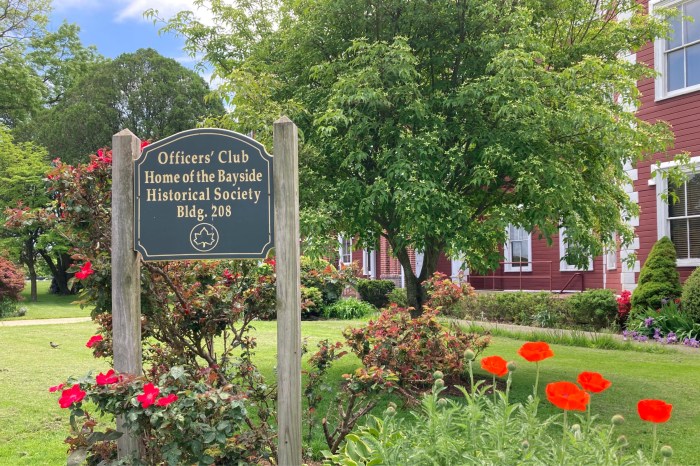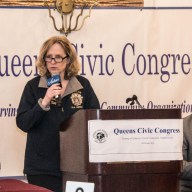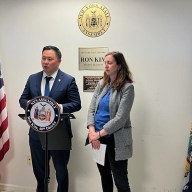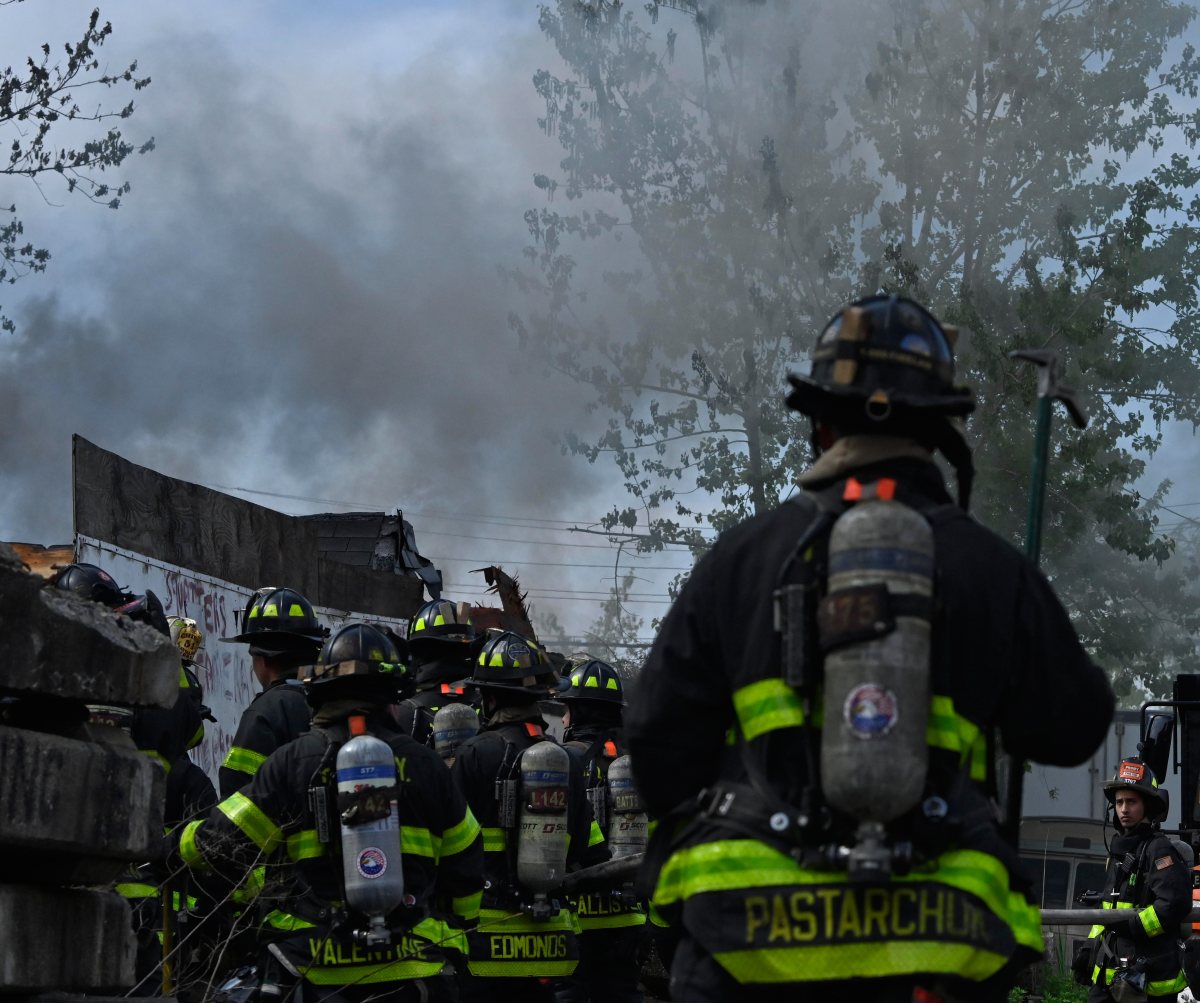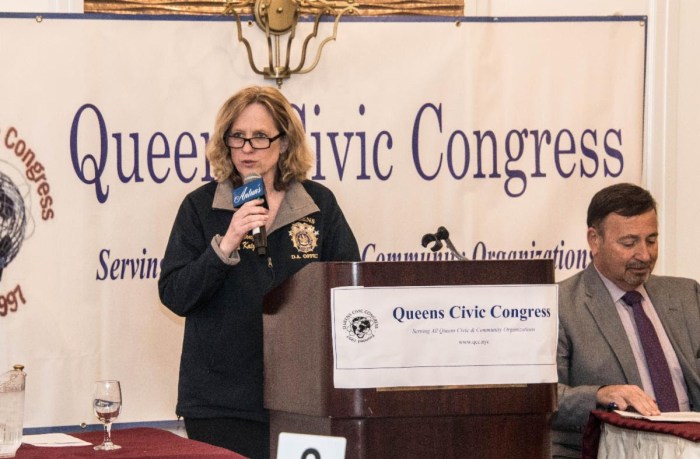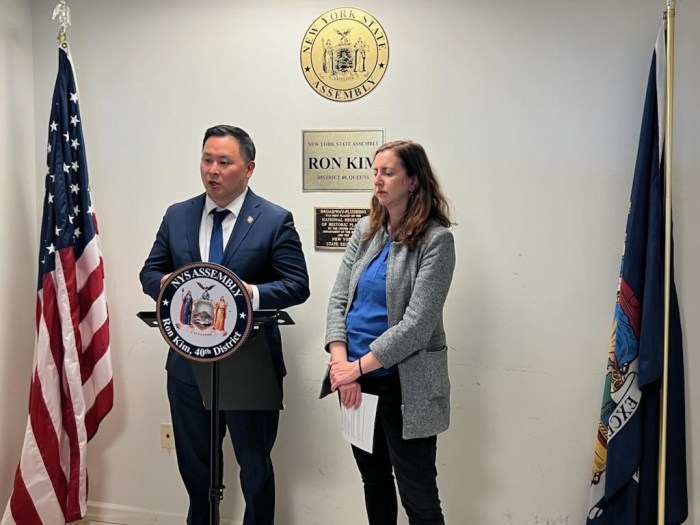By Tom Nicholson
The legislation gives residents in communities that are targeted for power plant construction more power and participation in the siting process for planned energy facilities.
The passage of the legislation comes after years of complaints and protests from Astoria residents who have railed against the Astoria Energy company's plan to build a 500-megawatt plant alongside the existing 825-megawatt facility at the northern end of Astoria.
Protesters say they are concerned with the health risks that emissions from an additional power plant would pose.
“This region already produces 50 percent of the city's energy,” said U.S. Rep. Carolyn Maloney (D-Astoria). “If we're 50 percent of production, we're 50 percent of pollution. It is unfair, it is wrong, and we're fighting it.”
Assemblyman Michael Gianaris (D-Astoria), who helped shape the bill to include improved community input and representation, hailed the bill's passage as a victory.
“I have long stressed the importance of providing overburdened communities with a voice in the power plant siting process,” Gianaris said. “I am pleased that the Assembly passed the types of changes necessary to increase public input and representation.”
Gianaris said the legislation includes several points that will bolster the public's voice in power plant proposals.
Those points include: allowing local officials to appoint representatives to the siting board, which decides where proposed power plants will be located; requiring a health, emissions and environmental impact analysis of proposed power plants; lowering the threshold required for public input on the construction of power plants from 80-megawatt facilities to 30-megawatt facilities; increasing the amount of funds from $400,000 to $500,000 the state will provide for communities to study the impact of proposed power plants.
In addition, the legislation would prohibit the Power Authority of the State of New York and the Long Island Power Authority from taking the lead role in assessing the environmental and health effects at their own facilities.
“The location of power plants clearly affects people's health and for too long these choices were made by a few who had little regard for the health and safety of the public,” Gianaris said. “This legislation will give communities the power to protect their own neighborhoods.”
Reach Reporter Tom Nicholson by e-mail at news@timesledger.com or by calling 718-229-0300, Ext. 157.

